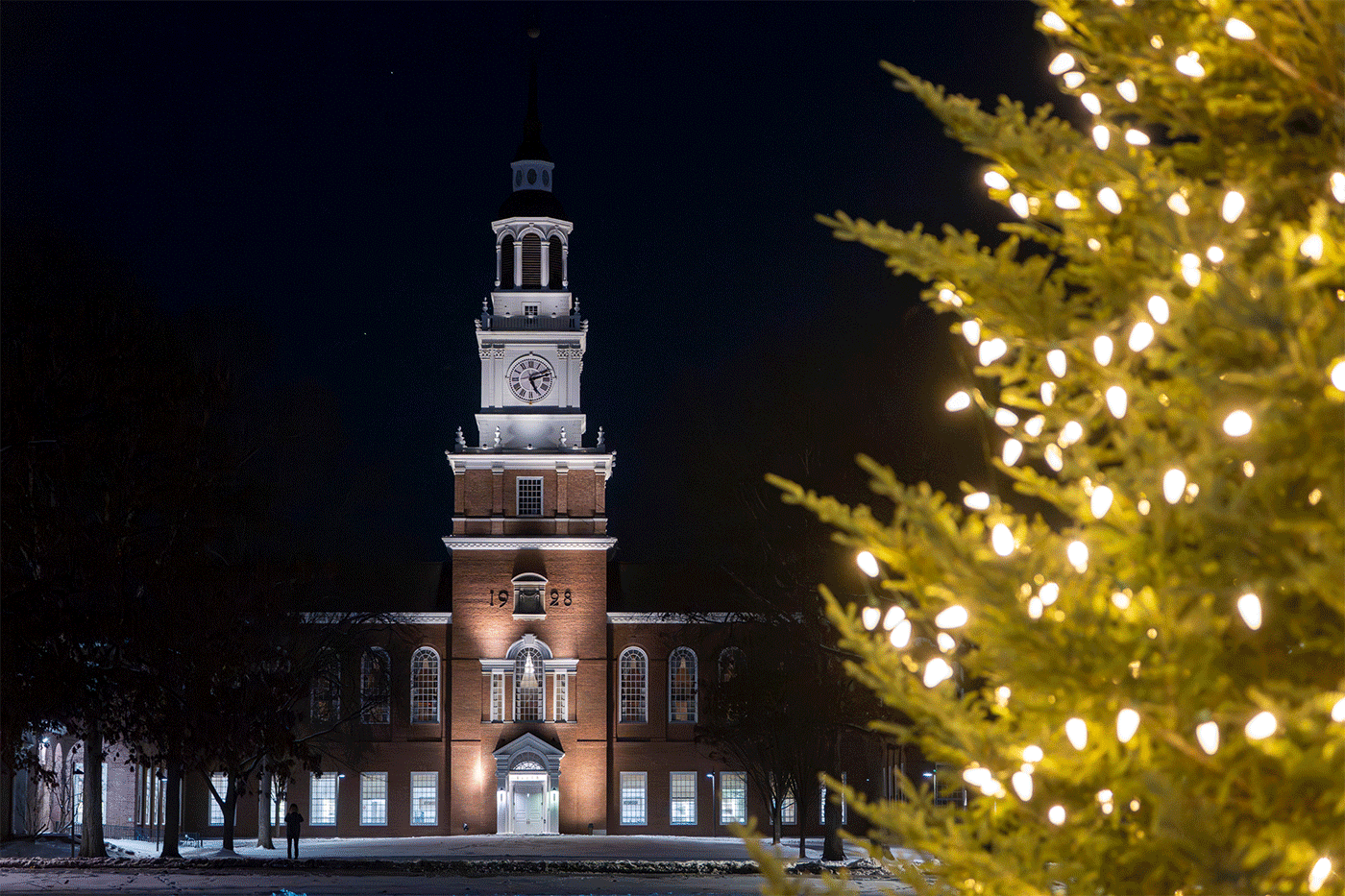[[{“type”:“media”,“view_mode”:“media_large”,“fid”:“”,“attributes”:{“class”:“media-image size-full wp-image-3313 alignleft”,“typeof”:“foaf:Image”,“style”:“”,“width”:“180”,“height”:“217”,“alt”:“rockefeller center logo”}}]] Dartmouth’s Rockefeller Center for Public Policy and the Social Sciences recently released the results from its third annual State of the State poll and the outcomes should make for an interesting midterm election season.
Approximately 400 New Hampshire registered voters, 52 percent male and 48 percent female, were polled via phone April 26–30, 2010, on their opinions on policy issues, elected officials, and the state of the economy in the state and nationally. The survey has an error rate of +/- 5.0 percent.
Some findings include:
On national health care reform: Opinions were split almost evenly with 43.7 percent supporting and 44.4 percent opposing health care reform. Respondents’ outlook on their personal health care situation is cautiously optimistic, with a slight majority (53.5 percent) reporting that they think their health care situation will either be “better” or “about the same” in five years.
On state politics: The state economy stood out as the number one priority for the second year in a row at 37.3 percent.
On taxes: Participants say they would rather have reduced services than higher taxes. When asked about measures to help resolve local budget problems, respondents favored “maintaining taxes, decreasing services” by 44.3 percent while “increasing taxes, maintaining services” garnered 26.2 percent.

According to Professor Ronald G. Shaiko, Rockefeller Center senior fellow and survey director: “Currently voters are concerned about the state budget and the overall health of the national economy. There is a high correlation between President Obama’s approval rating and voters’ views on the effectiveness of the economic stimulus package and on health care reform legislation. Right now voters who disapprove of Obama are also dissatisfied with the economic stimulus and do not support the health care reform efforts and vice versa.
“At the state level, Governor Lynch’s approval rating has fallen since last year; most of the decline is attributable to voters who are concerned about the state budget situation. Overall, New Hampshire is not looking as “blue” as it did in 2008. Republican Party candidates across the board are more than viable in this election cycle in New Hampshire.”
Students from the Rockefeller Center conducted the telephone survey. A third of respondents reported they were registered Republicans while slightly less than a third, 26.7 percent, reported themselves as Democrats. The largest portion of respondents, 38.7 percent, reported they were undeclared/independent voters. The average age of polled individuals was 59.

